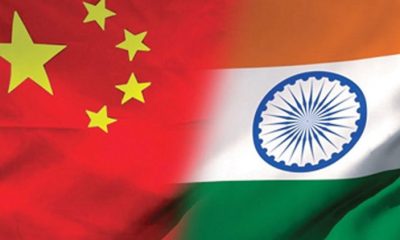World
China closes its Japanese affairs office

Beijing: The Chinese government confirmed that it has shut down the Japanese division of the Asian Affairs Department in the foreign ministry, arguing that the closure is “normal”, the media reported on Tuesday.
“The Department of Asian Affairs of the foreign ministry recently underwent normal administrative adjustment,” Hong Lei, foreign affairs ministry spokesman said on Monday.
“I would like to point out that there is no change to China’s foreign policy toward Japan,” the Global Times quoted the spokesman as saying.
According to Japanese media reports, the Chinese foreign ministry had shut down its Japanese affairs office and integrated it with the division for South Korea, North Korea and Mongolia.
The new office will be named the Northeast Asia office and will be led by Yang Yu, the former head of the Japanese division, the reports added.
Other offices will also be integrated soon, according to their geographic location, to create Southeast Asia and Southwest Asia offices.
The adjustment has sparked speculation in Japan, with some speculating that Sino-Japanese ties will be affected.
The concerns come after Japan enacted a new security bill on September 19, which will allow its Self-Defence Forces to engage in battle with its allies, despite both international and domestic opposition.
“The Japanese media has over-interpreted the move of the Chinese foreign ministry. The adjustment is very normal and it is aimed at enhancing the efficiency of the diplomatic work,” Zhang Lili, director of the International Studies Department at the China Foreign Affairs University, told the Global Times.
“In fact, China-Japan diplomatic relations depends on the attitude and behaviour of Japan on issues like wartime history,” Zhang explained.
World
Lockdowns in China Force Urban Communities to Defy Censorship and Vent Frustration Online

Shanghai’s rich middle class is leading a wave of online dissent over the strict and prolonged lockdowns imposed in various parts of the country. Chinese internet censorship is struggling as patience is wearing thin in many urban centers, coming up with creative forms of online protests.
Social Media Posts Revealing Lockdown Tension in Shanghai
Drawn-out lockdowns are nothing new in China as authorities insist with the nation’s zero-Covid policy since the start of the pandemic. Currently over This time around, however, metropolitan areas like Shanghai are increasingly difficult to keep quiet, given that its more than 25 million residents have seen weeks of total isolation along with food shortages and many other service interruptions.
Dozens of towns and reportedly over 300 million Chinese citizens have been affected by lockdowns of different severity. As expected, urban netizens have been most outspoken over their difficulties by finding creative ways to get around state censorship and bans placed on topics, news comments and spontaneous campaigns.
Shanghai residents have been using mobile proxies and hijacking seemingly unrelated hashtags to talk about healthcare issues, delivery failures and the overall severity of their situation. The “positive energy” that the Chinese government wants to transmit during the recent prolonged series of lockdowns does not come naturally to those counting food supplies and online censors are working hard to filter words, trending topics and undesired social media sharing.
WeChat groups and message threads are under constant monitoring. Posts questioning the zero-Covid approach have been quickly deleted, including by leading Chinese health experts like Dr. Zhong Nanshan. Video footage is soon censored and protests and investigations are quickly made to disappear.
Where this has not worked, officials have exposed banners with warnings and outright threats like “watch your own mouth or face punishment”, while drones have been patrolling the city skies. Yet, if anything, this has led to further tensions and unspoken confrontation with Shanghai’s educated and affluent middle class.
Creative Online Solutions Harnessing Civic Energy
Announcements by Chinese social media that they would be publishing the IP addresses of users who “spread rumors” have not helped either. Tech industry research has shown that much of Asia’s tech-savvy population has a habit of using mobile proxies and other privacy tools, quickly finding workarounds to browse the internet freely and talk to the world about the hottest topics.
The sheer volume of forbidden posts is already a challenge for the very censorship system, experts explain. Unable to track all trending hashtags, state workers overlook topics that speak about the US, Ukraine or other popular news. Linking human rights elsewhere to their situation, Chinese online dissidents establish their informal channels and “hijack” the conversation to share personal or publicly relevant information about the Covid suppression in their town.
Sarcastic and satirical posts still dominate. Others hope to evade the censors by replacing words from famous poems or the national anthem. One thing is certain – social media, when harnessed with the right creativity, has proven its ability to mount pressure on the government in even some of the most strictly controlled tech environments like China.























